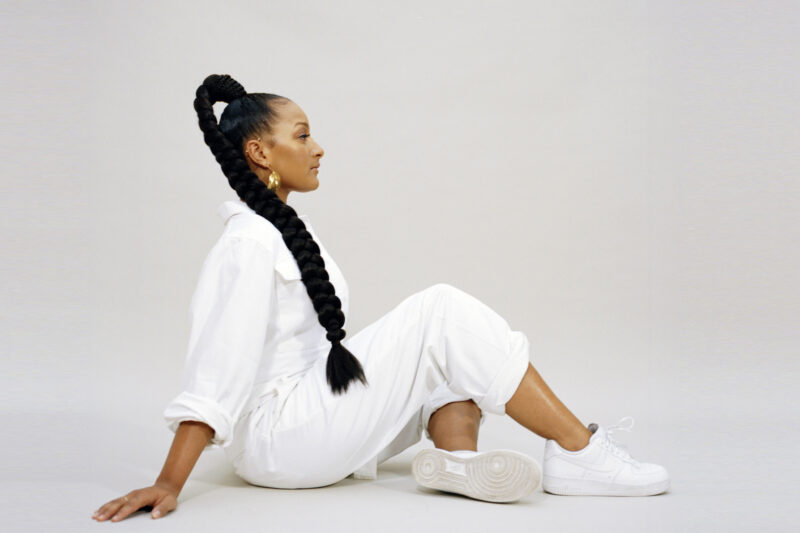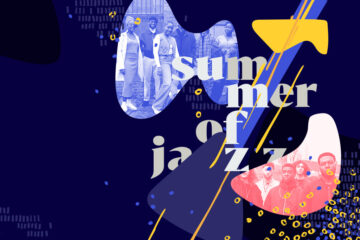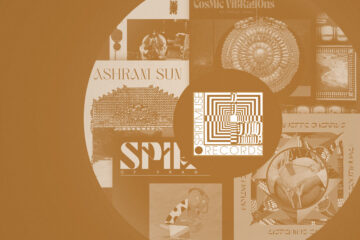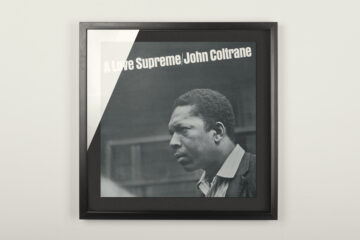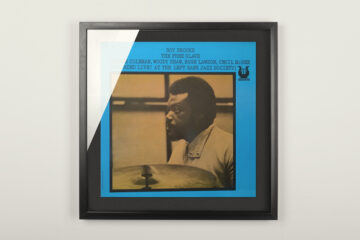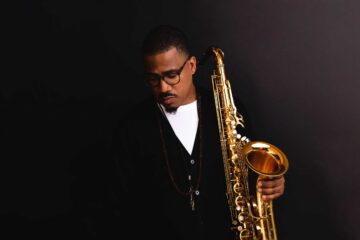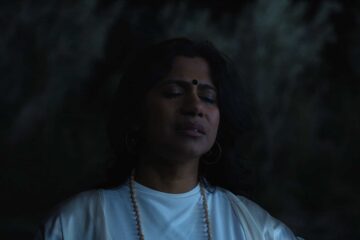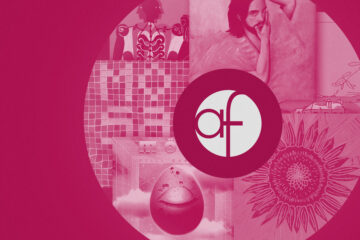Coolness is only partially what comes to mind, when you think about Jazz – at least here in Germany. As soon as Nubya Garcia comes on stage, you need a few seconds to get the Fly-Girl outfit with baggy pants together with jazz. Meanwhile in England this has become normal and Garcia is another of the over-talented artists from the capital of the United Kingdom. Nevertheless, the 29-year-old saxophonist stands out from a scene that already causes a furore anyway – her comparatively young age is just one of the reasons. Apart from superficialities, the daughter of a Guyanese mother and a Trinidadian father is above all inspiring with her ultra-synthetic jazz approach, which playfully combines be-bop with grime and dubstep. In addition, she mixes some Afro-Caribbean music styles such as reggae/Nyabinghi and cumbia – and there you have it: a global Jazz sound, which is as deep and brute sometimes, as it is romantic and introverted the very next moment. So what Garcia has already created with her combos Nérija and Maisha, finds a realization in perfection on her debut album ›Source‹: Jazz for people who find jazz too boring.
You can find the Vinyl Records by Nubya Garcia in the [HHV Records webshop](https://www.hhv.de/shop/de/nubya-garcia-jazz-fusion/i:A155971D2N48S6U9)
Let’s go to the very beginning: You started playing several instruments (piano, violine) before you changed over to the saxophone at age 11. What was the initial moment, that has lead you to this rather complex looking instrument?
Nubya Garcia: Honestly, I really can’t pinpoint that moment. Maybe I’d seen it before in other older bands, or at school? I don’t remember what lead me to it exactly, but I’ve always loved music, and was drawn to the sound that it made.
And when did you discover jazz as musical idea or language for? Have there been some artists or records that inspired you early on? And since preferences may always change over the time: How do you think about that records nowadays?
Probably around the age of 10 or 11? I started playing in a jazz band around the age of 12, and I think I had seen jazz played at school concerts from the older students etc. I was inspired by Charlie Parker and Miles Davis when I was young and just starting out. Sonny, and Dexter Gordon became my huge influences in my teens.. I remember listening to ›Kind of Blue‹ a LOT when I was in my teens and really really getting into jazz, definitely ›Maiden Voyage‹ by Herbie Hancock too. I’m still hugely inspired when listening to those records.
»Of course it is disadvantaged not having female role models… it was one way for a long time, so I’m very happy that the jazz-scene is finally changing.«
Nubya Garcia
Well, some years ago the jazz-scene – so it seems – was way more »macho« and female artists were few. There have been even less instrumentalists, especially on woodwinds and brass. Did you ever had the feeling that this was or could be a disadvantage – in general and lacking female role models?
Of course it is disadvantaged.. it was one way for a long time, so I’m very happy that the jazz-scene is finally changing.
Do you think that nowadays something like gender or sex is less and less a topic in jazz? And especially in London? Are themes like diaspora, heritage, synkretism and general questions/problems of modern societies moved into spotlight?
Yes to both, gender is less and less a topic in jazz, however I still get asked about it a lot, so maybe not to some; but amongst my community, and definitely in London it’s not something we talk about all the time. Which I think is a good thing, balance is key. Action is important, rather than only discussing it. We have some amazing development music organisations that are and have been working to support a more balanced and diverse musical community for a very long time.
Has London a special position in this since it has a very diverse population – and also very active communities of BPoCs, Latinx and Afro-Caribbeans, while some parts of English society falls back in dark times of nationalism and racism?
Yes, I guess London does have a special position in being a truly diverse community. When you travel more around the country and also around the world, you realise that there are very few places like London.
Your new and first solo-lp »Source« seems to be a journey through different stages of confronting these shifts in society. Do you think there is a common factor driving your work and what is happening right now with Black Lives Matter?
The album was written last year.. as a black person, and as a black woman particularly, of course my writing is inspired by my experiences and thoughts in my life. A constant stream of thoughts surrounds our collective, and personal power were on my mind. It came out in what I wanted to convey through this record: stories, thoughts, ideas… memories basically.
Musically you cover a broad field – from Dubstep and Reggae to classic be-bop over to Cumbia-; would it have been possible for you to make a record that is ›straight-ahead‹ in one way or another? Or is this variety of styles and musical ancestry incessant for you personally and musically?
Yes, maybe it was possible. I’ve done straight-ahead before and I will continue to do so. It’s as much of a part of my life as my other influences. This record was an opportunity for me to stretch and weave together several different strands of musical idioms. That was really important to me to create that sound spectrum for this first full album.
You can find the Vinyl Records by Nubya Garcia in the [HHV Records webshop](https://www.hhv.de/shop/de/nubya-garcia-jazz-fusion/i:A155971D2N48S6U9)

